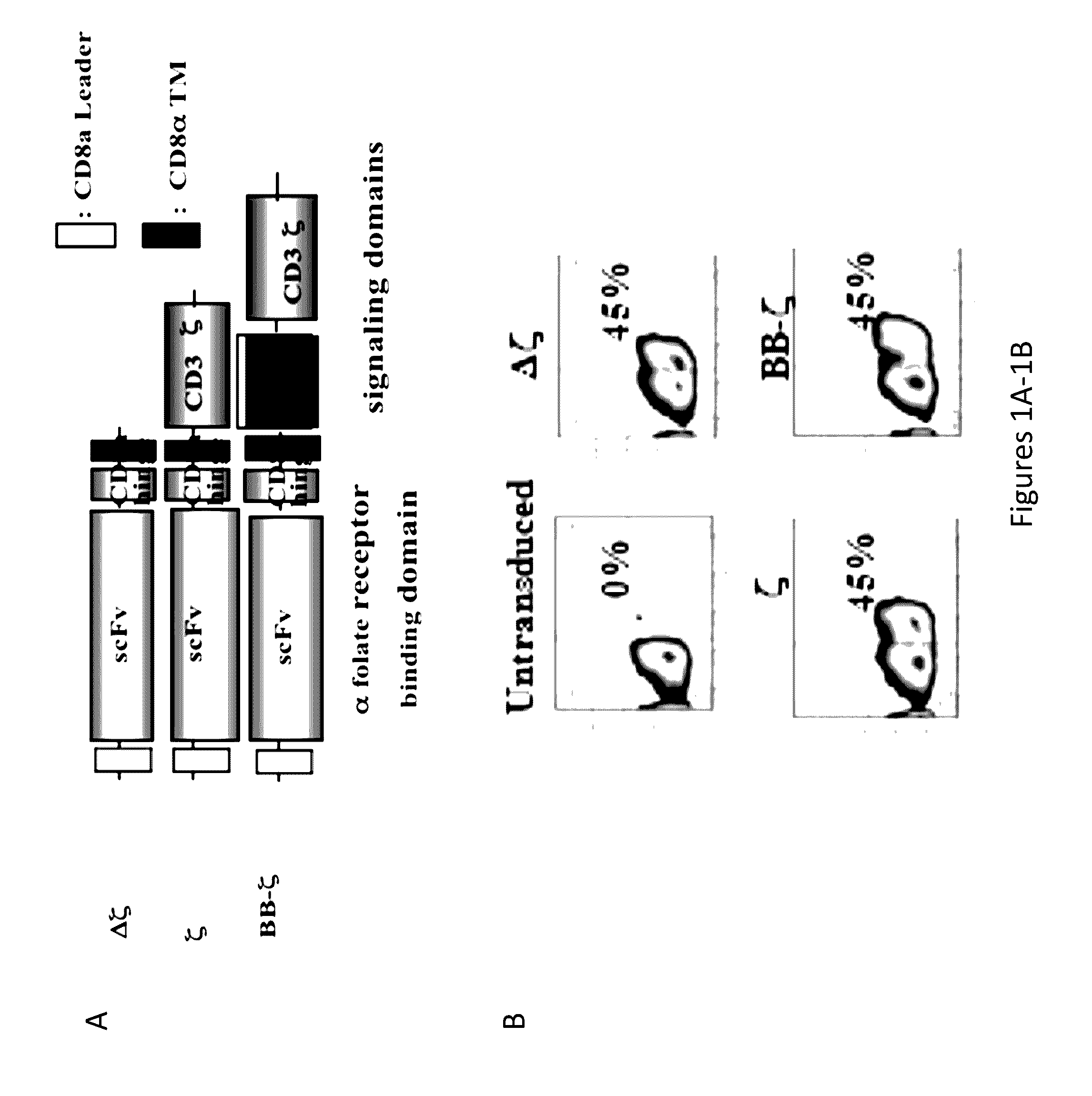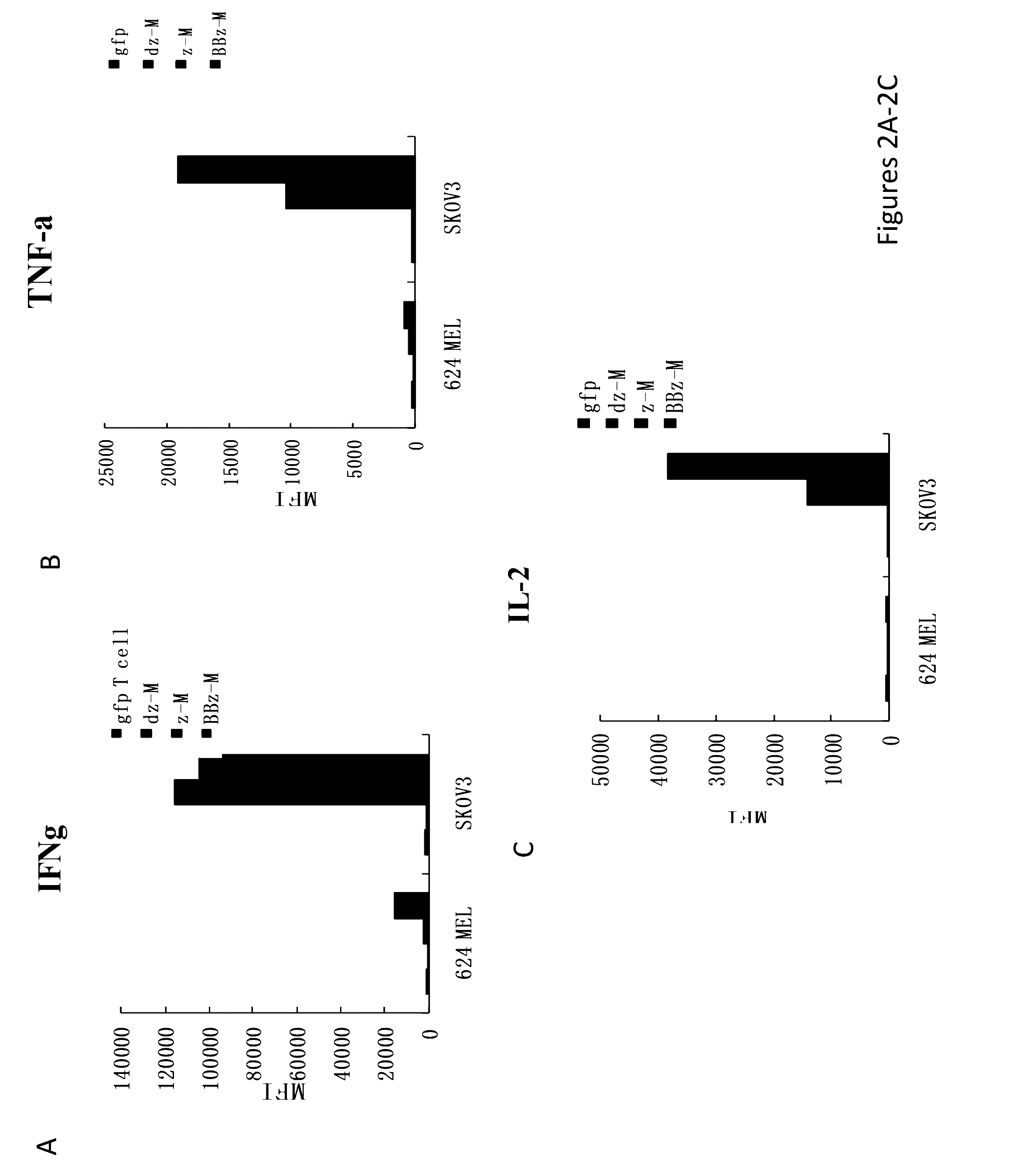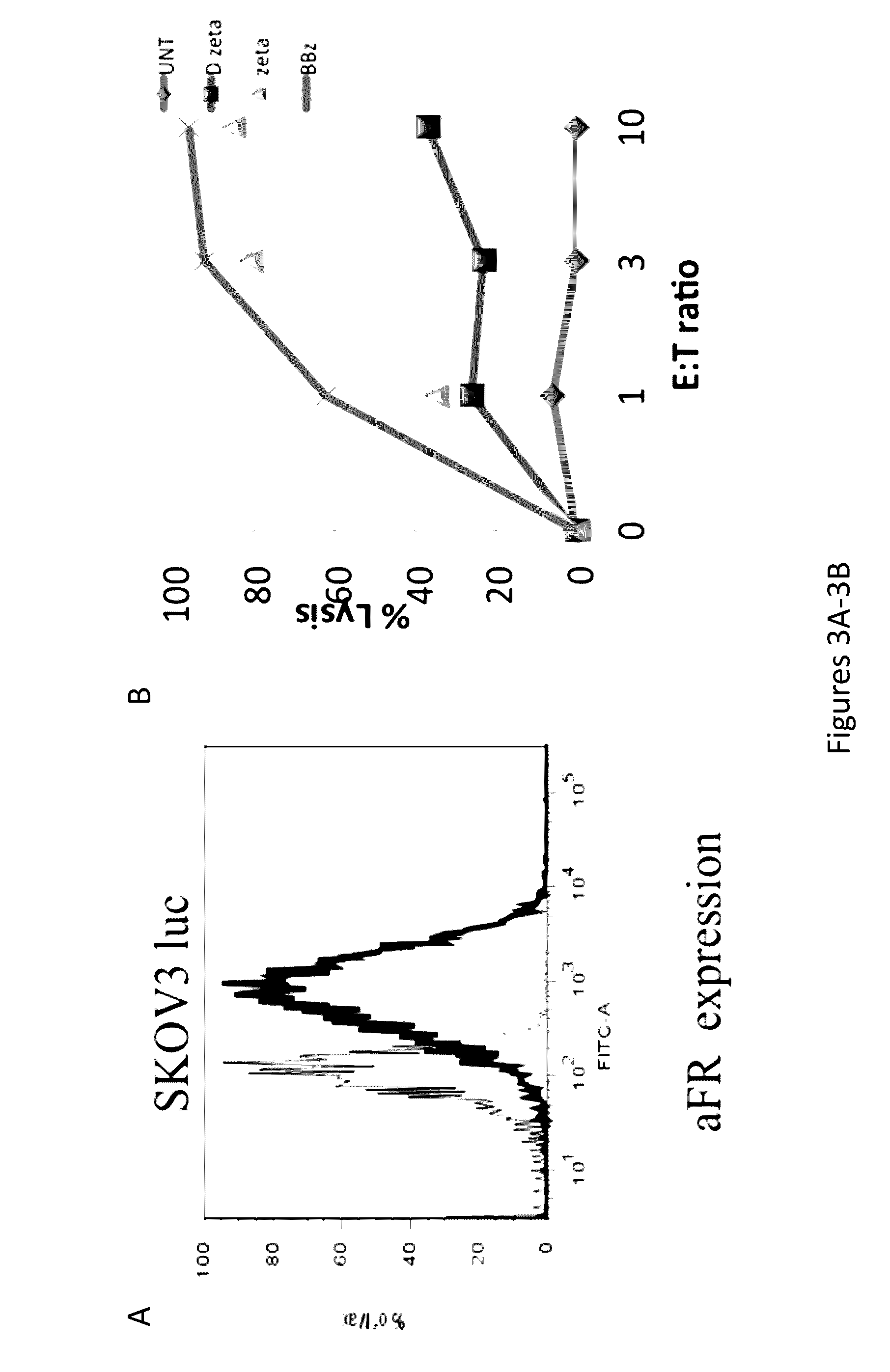Compositions and Methods for Treating Cancer
a cancer and composition technology, applied in the field of compositions and methods for treating cancer, can solve the problems of ineffective radiation therapy, inability to safely deliver high doses, and challenge the basis of this recommendation, so as to increase the effect of anti-tumor immunity and enhance t cell survival
- Summary
- Abstract
- Description
- Claims
- Application Information
AI Technical Summary
Benefits of technology
Problems solved by technology
Method used
Image
Examples
experimental examples
[0218]The invention is further described in detail by reference to the following experimental examples. These examples are provided for purposes of illustration only, and are not intended to be limiting unless otherwise specified. Thus, the invention should in no way be construed as being limited to the following examples, but rather, should be construed to encompass any and all variations which become evident as a result of the teaching provided herein.
[0219]Without further description, it is believed that one of ordinary skill in the art can, using the preceding description and the following illustrative examples, make and utilize the compounds of the present invention and practice the claimed methods. The following working examples therefore, specifically point out the preferred embodiments of the present invention, and are not to be construed as limiting in any way the remainder of the disclosure. The materials and methods employed in these experiments are now described.
[0220]Ge...
example 1
Eradication of Human Ovarian Cancer Following Adoptive Transfer of Genetically Modified α-Folate Receptor-Specific T Cells
[0268]Human T cells expressed cell surface scFv Mov19 40˜50% after lentiviral transduction (FIGS. 3A-3B). MOv19-ζ and BB-ζ transduced T cells demonstrated target-specific release of IFN-g, TNF-α and IL-2 cytokines and cytotoxicity function when co-cultured with FRα+ tumor cells, while T cells transduced with MOv19-Δζ or with GFP did not (FIGS. 4A-4C). In an in vivo Winn assay, MOv19-ζ transduced T cells were able to inhibit the out growth of FRα+ ovarian cancer (FIGS. 5A-5E and 6). In contrast, T cells transduced with the MOv19-Δζ or with GFP had no effect on tumor growth (FIGS. 5A-5E and 6). Notably, in vivo anti-tumor activity of MOv19 CAR was improved through provision of 4-1BB (CD137) signaling (FIG. 6). Furthermore, it is demonstrated that incorporation of the costimulatory domains enhanced the persistence of T cells and is associated with improved anti-tumo...
example 2
Efficiency of DNA Delivery and Target Cell Percentage Containing DNA
[0269]The lentiviral vector delivery system described is highly efficient in delivery of genes to T lymphocytes. In preclinical experiments using the T-body constructs proposed for this trial, it was routinely demonstrated>60% transduction efficiency for the α-FR-CAR protein in CD4+ T cells transduced to express the αFR CAR with CD3 zeta and 4-1BB signaling domains (FIG. 8B). Lentiviral vectors are well known for their superior gene transfer efficiency when compared to murine retroviral vector transduction efficiencies.
PUM
 Login to View More
Login to View More Abstract
Description
Claims
Application Information
 Login to View More
Login to View More - R&D
- Intellectual Property
- Life Sciences
- Materials
- Tech Scout
- Unparalleled Data Quality
- Higher Quality Content
- 60% Fewer Hallucinations
Browse by: Latest US Patents, China's latest patents, Technical Efficacy Thesaurus, Application Domain, Technology Topic, Popular Technical Reports.
© 2025 PatSnap. All rights reserved.Legal|Privacy policy|Modern Slavery Act Transparency Statement|Sitemap|About US| Contact US: help@patsnap.com



